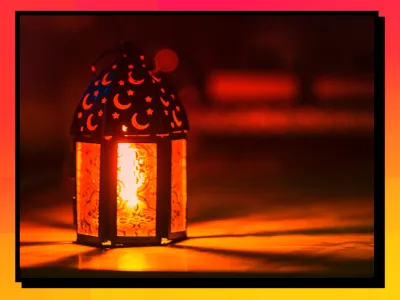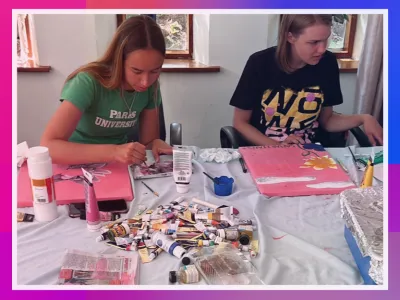
Ramadan: A Day In The Life
By Zarqa (she/her), who is an aspiring actress and writer.
It’s Ramadan! For me, this is my favourite time of the year as it gives me time to reflect on my own behaviours and work towards being a better person. It’s also a time to recognise and appreciate all the positive things that Allah has given me — like my family and friends!
But what exactly is Ramadan?
Well, it’s the ninth month of the Islamic calendar, in which Muslims try to become closer to Allah (God) by putting extra focus on three of the Pillars of Islam:
Salah – Prayer. Muslims are commanded by Allah to pray five times per day to remind them of their faith.
Zakah – Charity. Muslims will donate money to those in need if they’re able to, and they’ll strive to do good deeds.
Sawm – Fasting. During Ramadan, Muslims abstain from eating and drinking during daylight hours to remind them of their religious duty to help those less fortunate than them. Of course, people who are ill or travelling long distances, and young children, are all exempt from fasting.
A day in the life
So have you ever wondered what a typical day during Ramadan is like? Here’s a rundown of what a typical day during this sacred time looks like for me.
4:30 AM | Sehri
Sehri is the pre-dawn meal eaten before the fast begins. Because we fast during daylight hours, that’s around fourteen hours at this time of year — so eating a nutritious, filling and well-balanced meal is crucial.
My favourite sehri meals are:
- Overnight oats. I usually make this with oats, soya milk, fruit and chia seeds.
- Poached eggs on toast. This is my favourite breakfast to make as it only takes ten minutes!
- Rajma chawal (kidney bean curry with rice). As a South Asian person, this dish is comforting and homely to me. The curry is made with red kidney beans, garlic, ginger and spices; it’s packed full of protein and vitamins.
As well as nutritious food, hydration is also extremely important! I tend to drink lots of water at sehri.
5:25 AM | Fajr Prayer
Fajr prayer is the first of the five mandatory daily prayers, and it’s performed before sunrise.
This prayer always helps me to reflect on any worries I have that are making me stressed, so that I can let go of them before I begin my day.
5:30 AM – 7:30 AM | Getting ready for the day
Between Fajr prayer and heading out to college, I take some time to work on a story that I’m currently creating! At this time of the morning, I have more space for my thoughts to flow, as there’s less noise and distractions.
9:45 AM – 1:00 PM | At college
I have two lessons per day, and during my lunch break I spend time with my friends. They often ask me questions about Ramadan and how they can support me — which I really appreciate! Ramadan can sometimes be difficult, especially with exam stress looming over me.
1:15 PM – 2:00 PM | Zohar Prayer
Zohar prayer is the second prayer of the day, and I perform this prayer in an empty classroom. Praying in school or college can feel a bit strange or intimidating, and I sometimes worry that someone will be rude or ignorant. My advice to anyone who is curious or wants to ask a question about prayer, is don’t be afraid to ask! I’m always happy to share my culture and beliefs with others.
4:45 PM | After College
When I get home, I’ll take a nap for an hour or two to catch up on the sleep I missed at sehri. After that, I pray the third mandatory prayer of the day, which is called Asar prayer.
Then I like to do some acting exercises to prepare for an upcoming theatre performance that I have!
7:30 PM | Iftaar
Finally, it’s time to end my fast! This meal is known as iftaar.
Fasts are traditionally ended by having dates and water, but a fast can be ended by eating any type of food.
With my family, iftaar includes lots of tasty traditional South Asian treats such as samosas, kebabs and biryanis. It feels very rewarding and fulfilling to eat together and it makes me grateful for all the good things I have in my life.
9:30 PM | Isha Prayer
Isha prayer is the final prayer of the day. Performing this prayer helps me to relieve any worries or stresses that I’ve experienced during the day so that I can sleep as peacefully as possibly.
After the prayer, I go to bed, ready for the next day of fasting!
Include this article in your Skills Builder Journal. It could help you develop... 





